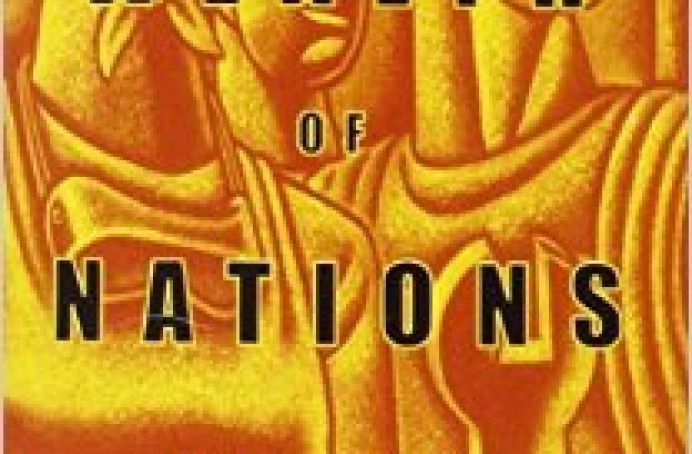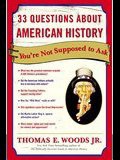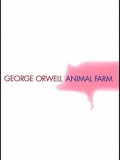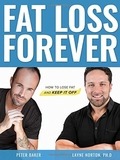Book

The Wealth Of Nations
It is symbolic that Adam Smith’s masterpiece of economic analysis, The Wealth of Nations, was first published in 1776, the same year as the Declaration of Independence.
In his book, Smith fervently extolled the simple yet enlightened notion that individuals are fully capable of setting and regulating prices for their own goods and services. He argued passionately in favor of free trade, yet stood up for the little guy. The Wealth of Nationsprovided the first--and still the most eloquent--integrated description of the workings of a market economy.
The result of Smith’s efforts is a witty, highly readable work of genius filled with prescient theories that form the basis of a thriving capitalist system. This unabridged edition offers the modern reader a fresh look at a timeless and seminal work that revolutionized the way governments and individuals view the creation and dispersion of wealth--and that continues to influence our economy right up to the present day.
In his book, Smith fervently extolled the simple yet enlightened notion that individuals are fully capable of setting and regulating prices for their own goods and services. He argued passionately in favor of free trade, yet stood up for the little guy. The Wealth of Nationsprovided the first--and still the most eloquent--integrated description of the workings of a market economy.
The result of Smith’s efforts is a witty, highly readable work of genius filled with prescient theories that form the basis of a thriving capitalist system. This unabridged edition offers the modern reader a fresh look at a timeless and seminal work that revolutionized the way governments and individuals view the creation and dispersion of wealth--and that continues to influence our economy right up to the present day.
aboutLiberty Portal
Liberty Portal is your gateway for free markets and free thinking. We aggregate open-sourced content to promote and popularize important people and lessons within the liberty movement.
suggested
Tom Woods
33 Questions About American History You’re Not Supposed to Ask

News flash: The Indians didn’t save the Pilgrims from starvation by teaching them to grow corn. The “Wild West” was more peaceful and a lot safer than most modern cities. And the biggest scandal of the Clinton years didn’t involve an intern in a blue dress.
Surprised? Don’t be. In America, where history is riddled with misrepresentations, misunderstandings, and flat-out lies about the people and events that have shaped the nation, there’s the history you know and then there’s the truth. In 33 Questions About American History You’re Not Supposed to Ask, New York Times bestselling author Thomas E. Woods Jr. reveals the tough questions about our nation’s history that have long been buried because they’re too politically incorrect to discuss, including:
Read moreSurprised? Don’t be. In America, where history is riddled with misrepresentations, misunderstandings, and flat-out lies about the people and events that have shaped the nation, there’s the history you know and then there’s the truth. In 33 Questions About American History You’re Not Supposed to Ask, New York Times bestselling author Thomas E. Woods Jr. reveals the tough questions about our nation’s history that have long been buried because they’re too politically incorrect to discuss, including:
George Orwell
Animal Farm

George Orwell's timeless and timely allegorical novel—a scathing satire on a downtrodden society’s blind march towards totalitarianism.
“All animals are equal, but some animals are more equal than others.”
A farm is taken over by its overworked, mistreated animals. With flaming idealism and stirring slogans, they set out to create a paradise of progress, justice, and equality. Thus the stage is set for one of the most telling satiric fables ever penned—a razor-edged fairy tale for grown-ups that records the evolution from revolution against tyranny to a totalitarianism just as terrible.
When Animal Farm was first published, Stalinist Russia was seen as its target. Today it is devastatingly clear that wherever and whenever freedom is attacked, under whatever banner, the cutting clarity and savage comedy of George Orwell’s masterpiece have a meaning and message still ferociously fresh.
Read more“All animals are equal, but some animals are more equal than others.”
A farm is taken over by its overworked, mistreated animals. With flaming idealism and stirring slogans, they set out to create a paradise of progress, justice, and equality. Thus the stage is set for one of the most telling satiric fables ever penned—a razor-edged fairy tale for grown-ups that records the evolution from revolution against tyranny to a totalitarianism just as terrible.
When Animal Farm was first published, Stalinist Russia was seen as its target. Today it is devastatingly clear that wherever and whenever freedom is attacked, under whatever banner, the cutting clarity and savage comedy of George Orwell’s masterpiece have a meaning and message still ferociously fresh.
Layne Norton
Fat Loss Forever

Diets are failing in an epic way. Chances are you’ve tried one of the popular diets out there. The Atkins Diet, The South Beach Diet, The Zone Diet, The Blood Type Diet, The Eat Clean Diet, The Alkaline Diet, The Ornish Diet, The Insert Name Here Diet.You probably lost some weight… for awhile. Did you keep it off? Chances are you didn’t. In fact, chances are you regained it all back and possibly then some. You aren’t alone. Six out of seven people who are overweight are able to successfully lose weight during their lifetime.
Read more


